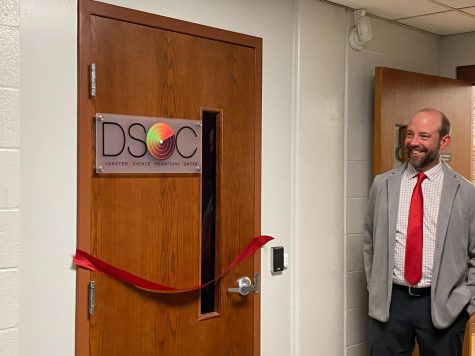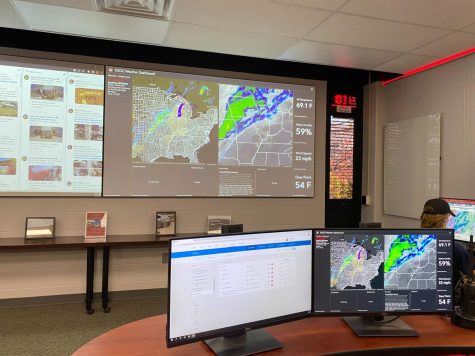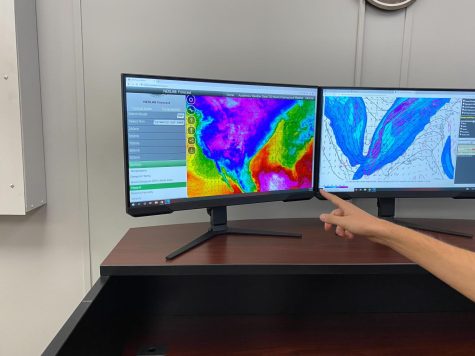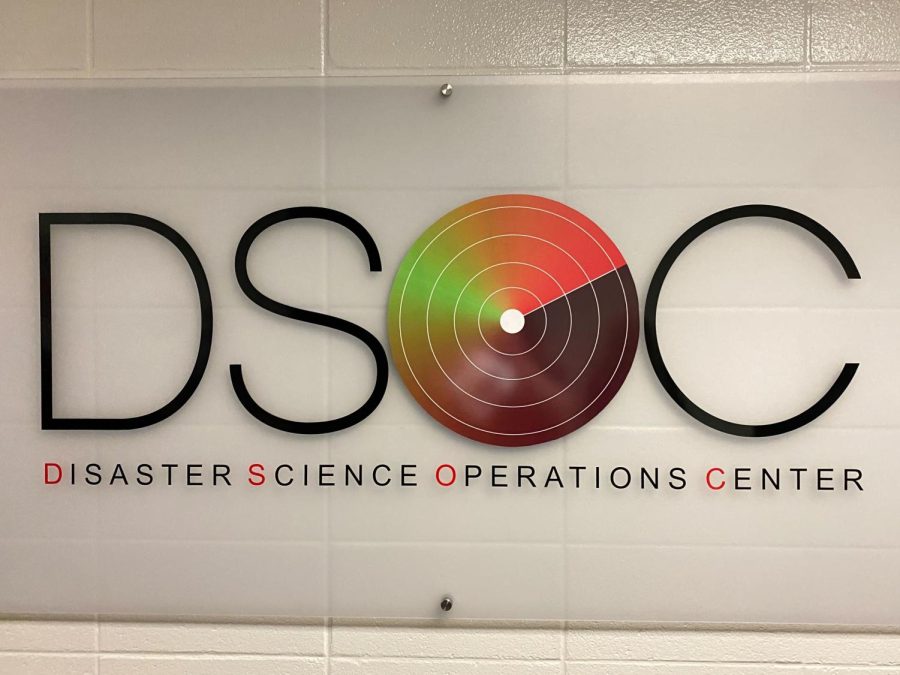Multidisciplinary and interdisciplinary: WKU dedicates Disaster Science Operations Center
WKU’s newly dedicated Disaster Science Operations Center, located in the Environmental Science & Technology Building, brings hands-on experience to students from a variety of disciplines including meteorology, broadcasting, engineering, disaster management, agriculture and communication.
November 4, 2022
A handful of WKU students, some sporting White Squirrel Weather attire, monitor a cold front developing over the plains. Another group circles up around a table to discuss code with a set of calculations written on the whiteboard behind them.
These students are hard at work in WKU’s newly dedicated Disaster Science Operations Center, another place on campus where students from a multitude of disciplines can take advantage of hands-on experience and applied research.
The DSOC, dedicated Friday morning, is situated inside WKU’s Environmental Science & Technology Building. Projectors, screens and computers are sprinkled across three main rooms to assist students in developing weather forecasts and relaying information to the public.

Joshua Durkee, professor and university meteorologist, alongside David Oliver, WKU’s director of environmental health and safety, serve as DSOC’s faculty and staff directors.
“[Oliver] and I met in 2013, we started to learn together that weather is one of the biggest disruptors,” Durkee said. “As him and I have worked together over the years, we’ve been reshaping the way we plan for and respond to any type of weather or incident that can happen to campus.”
The center is a collaboration between White Squirrel Weather, WKU’s meteorology program, WKU’s Department of Environmental Health & Safety, WKU Public Broadcasting and WKU Athletics. DSOC brings students and staff from meteorology, emergency management and Homeland Security Sciences together to improve disaster mitigation and responses.

“DSOC is the only one of its kind at WKU, in that it is rooted in multiple graduate and undergraduate programs in Ogden while it also serves, trains and credentials students across colleges at WKU,” Caboni said.
David Brown, dean of the Ogden College of Science & Engineering, echoed the president’s sentiment.

“It’s not just isolated to one program in one building,” Brown said. “There are possibilities to interface with agriculture, to interface with engineering, business, health and human services, education, communications.”
Co-Editor-in-Chief Jake Moore can be reached at [email protected]. Follow him on Twitter @Charles_JMoore.















